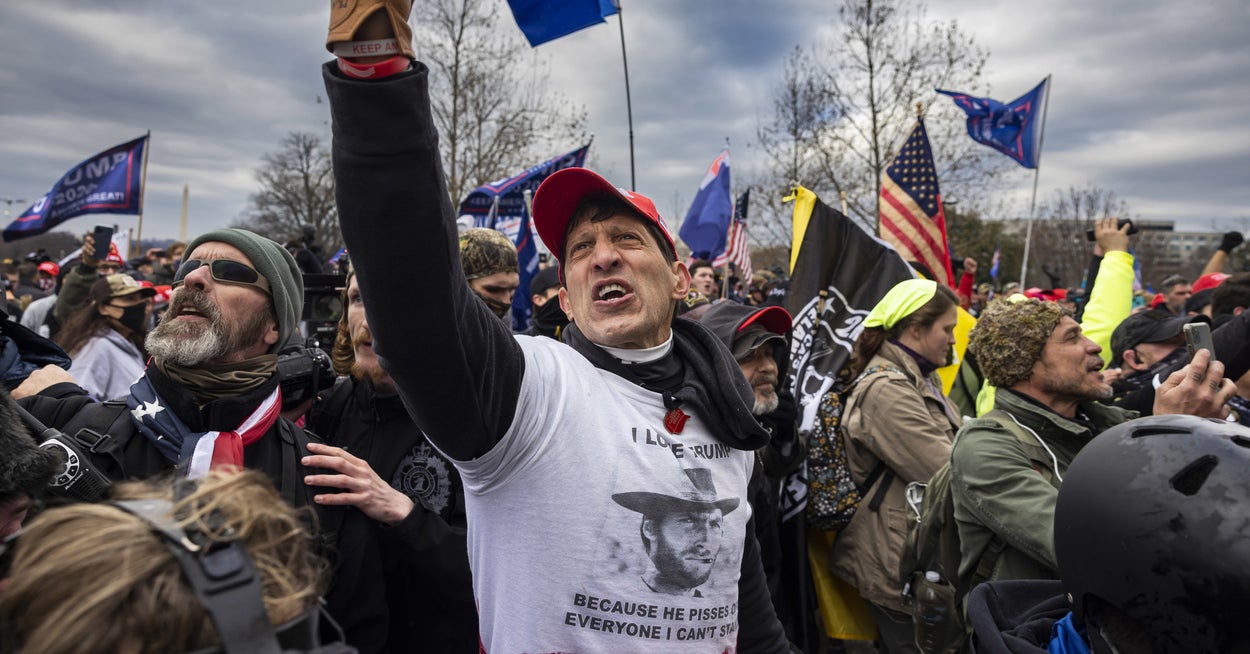|
Getting your Trinity Audio player ready...
|
On the one hand, it’s a deeply cynical, destructive, and indeed existential argument. On the other hand, a lot of people bought it. The good news is that Trump is not currently president. The bad news is that on his way out, he dealt a near-fatal blow to those institutions when he encouraged supporters to “fight like hell” and march on the Capitol. Sure, the system held up and rebuffed Trump’s play. But the cost was deep disarray, a rattled political realm that has not yet fully contended with the image of one president tarnishing the system. In a democracy governed by unwritten norms, adding a dangerous precedent is one of the most destabilizing things you can do. And who knows who will be compelled to push the precedent further next time?
The more immediate question for American democracy is: Why did more people vote for Donald Trump in 2020 than in 2016? Surely they didn’t miss the news cycle of his entire presidency. It’s impossible to have missed him systematically subverting the institutions that governments rely on. So could it be that they bought the story that the institutions were unworthy of redemption? Did his presidency confirm something about decay in general social trust?
Consider the Edelman Trust Barometer. The public relations firm has been conducting an annual global survey measuring public confidence in institutions since 2000. Its 2022 report, which found that distrust is now “society’s default emotion,” recorded a trend of collapsing faith in institutions such as government or media.
Though it’s easy to be dismissive of Trump’s crass nihilist threat, it’s far harder to contend with the realities that enabled him to succeed. After decades of letting inequality worsen, those with their hands on the levers of American democracy suddenly found the will and drive to send thousands of dollars into the bank accounts of every American. US households grew their wealth by $13.5 trillion in 2020 thanks in part to generous government spending to keep the economy afloat. This may solve one big problem — how people were supposed to pay their rent and mortgages while work was closed — but it introduced a new one: Wait, so the government could’ve done this any time it wanted?
Soon it became clear that even the wealth gains of the pandemic were not equal. Because of an unexpected stock market boom, more than 70% of the increase in household wealth went to the top 20% of income earners. Generally, workers with higher incomes saw their lot improve due to the sweeping economic changes of COVID. Meanwhile, temporary pandemic aid programs helped reduce child poverty in the US before they were pulled back in late 2021.
It’s possible — at times rational, even — to conclude that successive American governments have not considered widening income inequality to be an urgent problem. It’s rational to conclude that successive American governments have been asleep at the wheel, content with general economic growth while not paying attention to where that growth was going.
That we have social language for this is a meaningful success of the Occupy Wall Street movement of 2011. Its physical impact may have been short, but its rhetorical one is a reimagination of the public language of inequality. We have a 1 percent and a 99 percent — and by every imaginable metric, the lives of the 1 percent have been getting better, even during a global pandemic. Indeed, the richest Americans have gotten unimaginably richer during this period of great upheaval.
If there is comfort to be found in the vague promises to use the pandemic as an opportunity to rethink society — the vows for a “Great Reset,” the pledges to “Build Back Better” — the comfort is immediately undone by the reality that those very vows have been hijacked by anti-science, anti-vaccine, anti-lockdown people to claim baseless conspiracy theories that go as far as suggesting the lockdowns are deliberately designed to speed up economic collapse.
These claims are not unique to the US. There have been tremors in Canada, where a convoy of truckers and their supporters occupied downtown Ottawa for weeks and demanded the prime minister’s removal. On the other side of the Atlantic, they’ve popped up in the Netherlands, Germany, and France.
It’s difficult to imagine how trust in national governments can be repaired. This is not, on the face of it, apocalyptic. The lights are on and the trains run on time, for the most part. But civic trust, the stuff of nation-building, believing that governments are capable of improving one’s life, seems to have dimmed.
In February, the Republican Party declared that the Jan. 6 insurrection and the preceding events that led to it constituted “legitimate political discourse.” At best, this is a direct attempt to minimize the events of that day. At worst, the Republicans’ declaration implies that the US’s political institutions are fraudulent and that any form of protest — including insurrection — is valid. This may get the party votes in the upcoming midterm elections, but it’ll cost more than money: It’ll come at the price of further deterioration in public trust.



